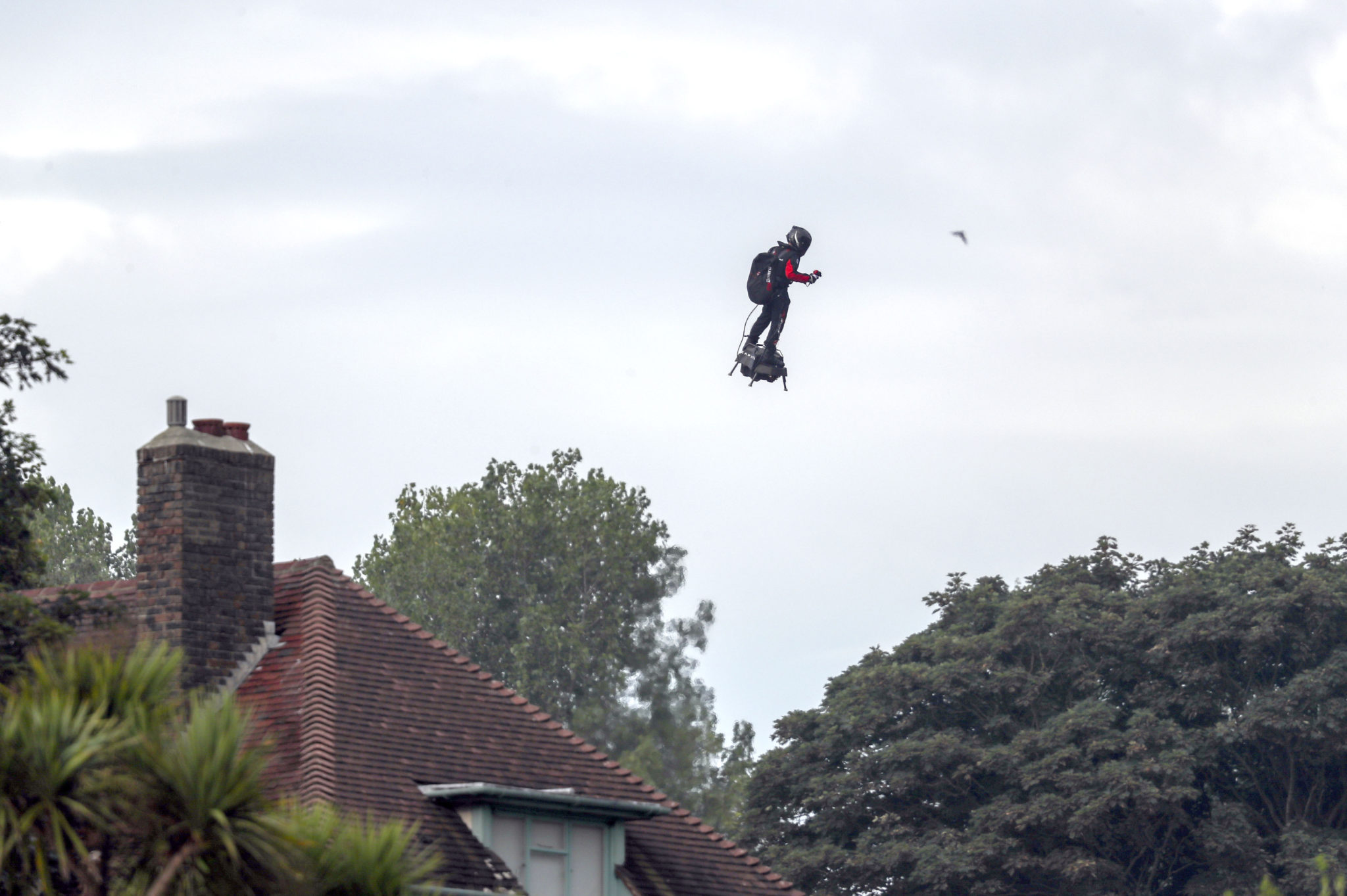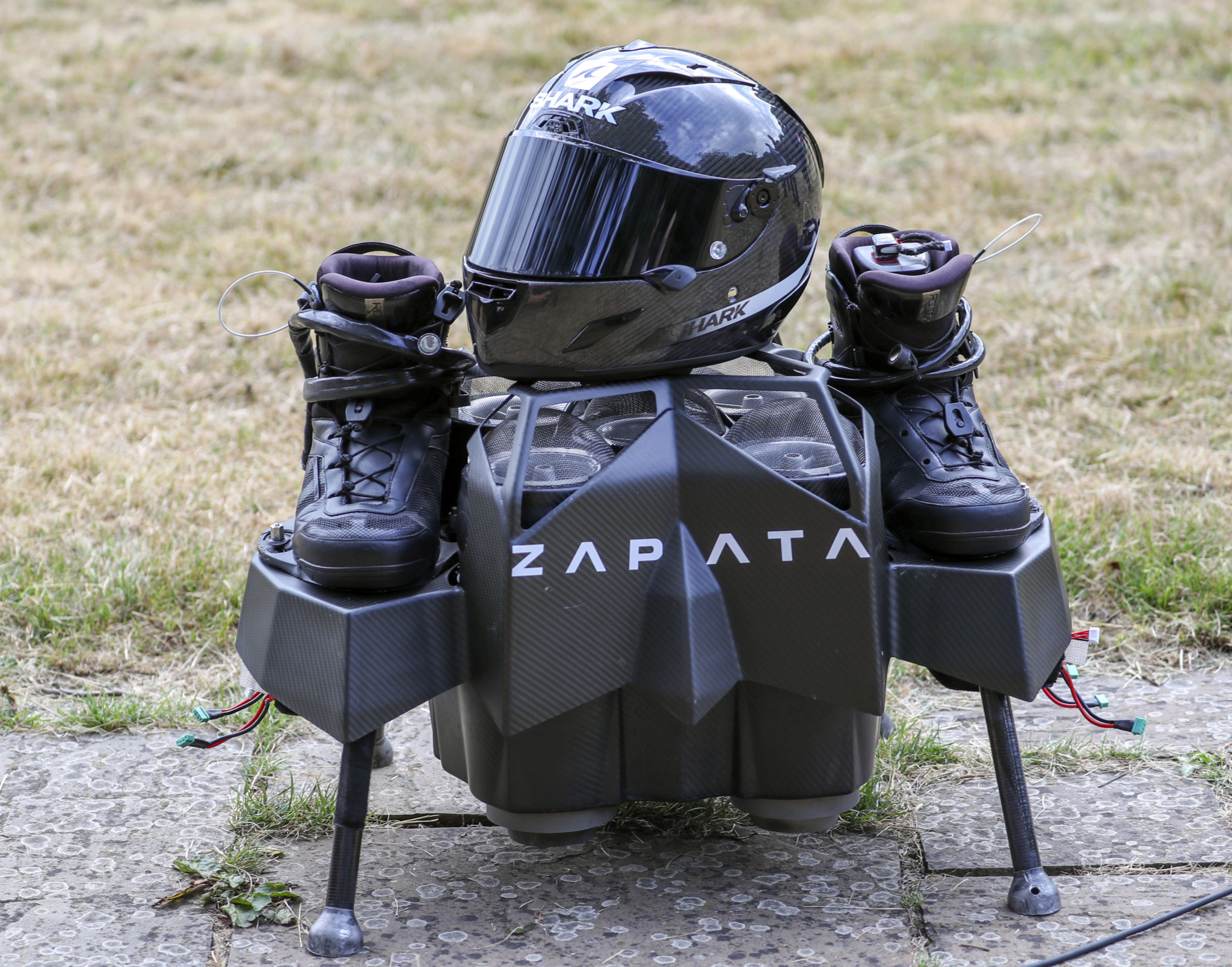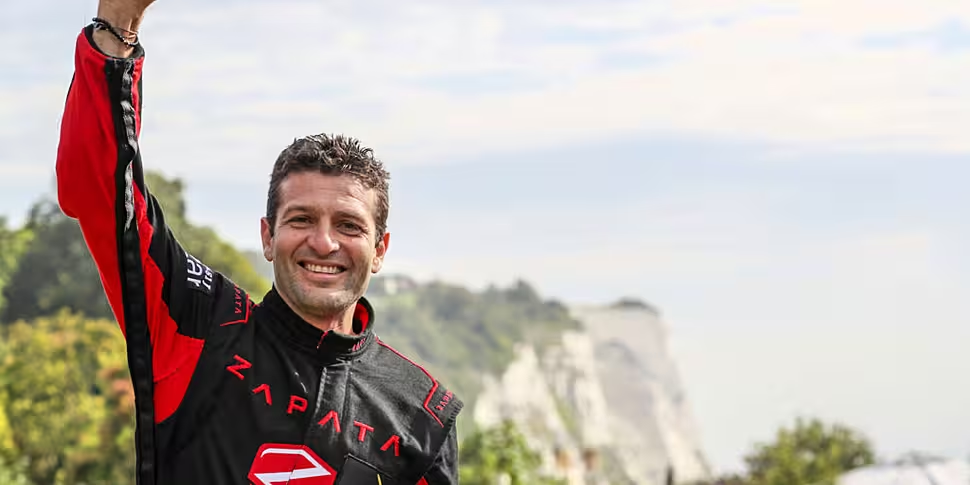Franky Zapata took off from Sangatte in northern France at 7.15am and landed at St Margaret's Bay in Dover about 25 minutes later.
It was his second attempt at the 21 mile crossing - his first ended following problems with a refueling platform on a boat in the sea.
But after making some necessary changes to his refueling arrangements, the 40-year-old former Jet Ski champion was able to make his second attempt a success.
Speaking to reporters on arrival in England, Mr Zapata said he "really enjoyed" the last five to six kilometres of his journey.
He added: "Whether this is a historic event or not, I'm not the one to decide that, time will tell.
"We made a machine three years ago...and now we've crossed the Channel, it's crazy."
 French inventor Franky Zapata lands near St Margaret's beach, Dover after crossing the Channel on a jet-powered hover-board.
French inventor Franky Zapata lands near St Margaret's beach, Dover after crossing the Channel on a jet-powered hover-board.Mr Zapata's wife Krysten told Sky News that she was "very happy" at the result, but noted that her husband was also "very tired" after working long hours to achieve his goal.
She added: "Everything is perfect...This is his day."
During the journey, Mr Zapata carried enough kerosene in his backpack to fuel the hoverboard for about 10 minutes in the air, strapping a fresh supply for the second leg of his journey.
He steered his Flyboard aircraft, which flies at up to 87mph, by leaning forwards or backwards, and controlled thrust with a throttle connected to his 1,500 horsepower board.
 The jet-powered hover-board used by French inventor Franky Zapata to cross the English Channel to Dover.
The jet-powered hover-board used by French inventor Franky Zapata to cross the English Channel to Dover.The invention won global acclaim when Mr Zapata flew over France's Bastille Day celebrations in Paris on 14 July.
Mr Zapata was given a grant of more than £1m from the French government to develop the technology behind his hoverboard.
Main image: French inventor Franky Zapata poses for photographs in Dover after crossing the Channel on a jet-powered hover-board. Steve Parsons/PA Wire/PA Images.









